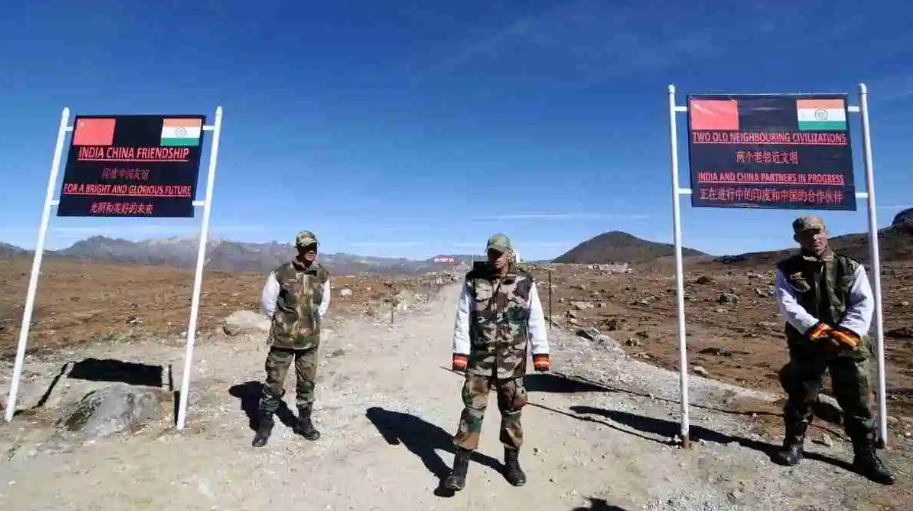India and China reach deal on patrolling disputed border
This follows previous announcements and could lead to a bilateral summit between Narendra Modi and Xi Jinping on the sidelines of the BRICS summit underway in Kazan, Russia, which, for the first, includes Iran, Egypt, Ethiopia, and the United Arab Emirates. Negotiations between New Delhi and Beijing over the past four years have ended in an impasse and experts say disputes between the two are far from being resolved.
Kazan (AsiaNews/Agencies) – India and China have announced a deal on patrolling the disputed region of Ladakh, where soldiers of the two countries clashed in June 2020, resulting in the death of 20 Indian and four Chinese soldiers.
India’s External Affairs Ministry made the announcement yesterday, shortly before the arrival of Indian Prime Minister Narendra Modi in Kazan, Russia, for the BRICS summit (22-24 October). BRICS was created in 2009 and initially included Brazil, Russia, India, China, later joined by South Africa.
Over the past four years, tensions along their 3,000-kilometre Line of Actual Control (LAC) have prompted India and China to pull back their troops and reduce patrol activities, to avoid further clashes.
Now New Delhi and Beijing will follow agreed arrangements for patrolling the disputed areas.
The deal reached “along the LAC in the India-China border” has led “to the disengagements and a resolution of the issues that had arisen in 2020,” said Indian Foreign Secretary Vikram Misri.
Still, for India’s External Affairs Minister Subrahmanyam Jaishankar, "peace and tranquillity" are needed to improve bilateral relations.
The Chief of Army Staff, General Upendra Dwivedi, speaking at a conference organised by the United Service Institution of India, stressed that while India and China are trying to "restore trust”, further de-escalation steps are still required.
The announcement of the agreement is likely to be a prelude to a bilateral meeting between Indian Prime Minister Modi and Chinese President Xi Jinping on the sidelines of the BRICS summit.
Even if this takes place, according to experts, the issues between China and India are far from being resolved.
For Farwa Aamer, director of South Asian Initiatives at the Asia Society think tank, the deal is a “step towards normalcy if not a full-blown reset just yet,”
Russian President Vladimir Putin, who is hosting the BRICS summit, will benefit if talks between Modi and Xi are held.
Last year, at the BRICS meeting in Johannesburg, Modi and Xi said they had spoken to each other and agreed to reducing tensions along the Line of Actual Control.
In September, Chinese Foreign Minister Wang Yi and India's National Security Adviser Ajit Doval discussed the issue in St. Petersburg at a security meeting between high-level officials from BRICS countries.
In the last four years, more than 30 rounds of border negotiations have taken place between Chinese and Indian officials, always ending in an impasse.
Putin is trying is to offer a platform for cooperation to countries that may have an interest in distancing themselves from the West.
Brazilian President Luiz Inácio Lula da Silva is absent from the Kazan summit (apparently from an injury sustained at home), but "new" BRICS members – Egypt, Ethiopia, Iran, United Arab Emirates – will attend the meeting for the first time since they joined the bloc in January of this year.
UN Secretary-General Antonio Guterres will also be present, as will be the heads of state or government of countries invited to join the group.
Belarus (a Russian ally), Kazakhstan (which recently said it does not yet want to apply for membership), and Turkey (which is in NATO, seemingly interested in developing economic ties with Russia and China). These countries are part of the so-called Global South.
Within BRICS, not everyone is ready to accept China’s ambition to lead the bloc. India’s Modi, especially, is keeping the door open to the United States and the other members of the G7 grouping, where he is regularly invited.
24/10/2024 15:44
08/09/2020 17:11







.png)










